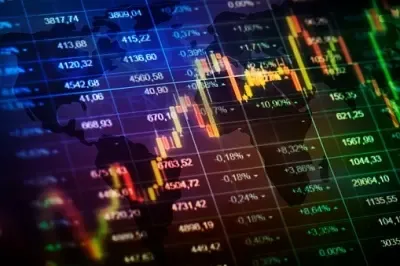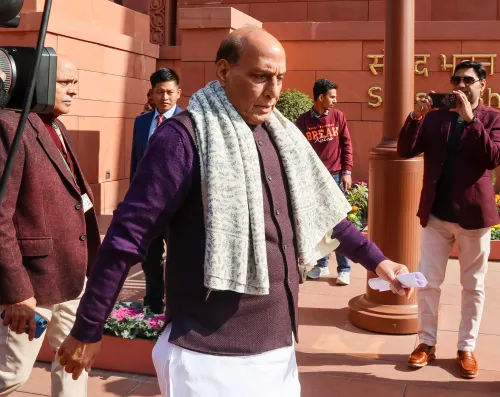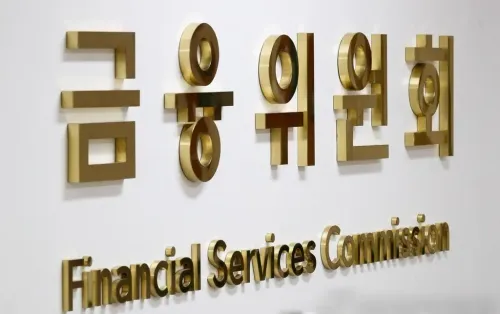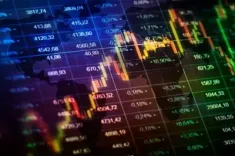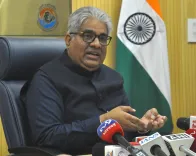Bank of Korea Lowers Key Interest Rate by 25 Basis Points Amid Dismal Growth Predictions
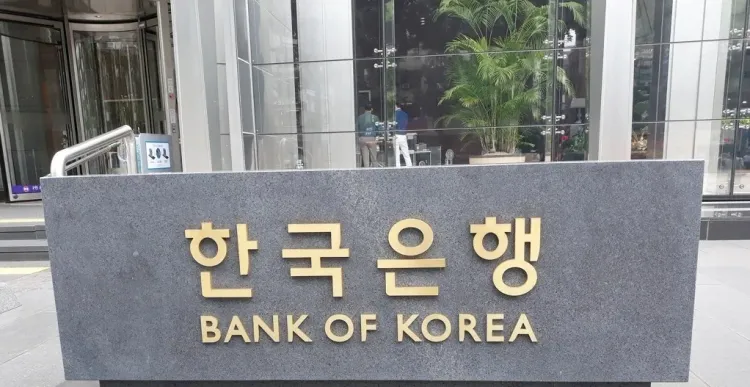
Synopsis
Key Takeaways
- Bank of Korea cuts interest rate to 2.75%
- 2025 growth outlook revised down to 1.5%
- Influence of Trump's tariffs on South Korea
- First trade deficit in 20 months reported
- Retail sales drop marks third consecutive year of decline
Seoul, Feb 25 (NationPress) The central bank of South Korea has reduced its benchmark interest rate by 25 basis points on Tuesday to bolster economic growth in light of weak domestic demand and various uncertainties both locally and internationally.
The monetary policy committee of the Bank of Korea (BOK) made this decision to lower the key rate to 2.75 percent during a meeting held in Seoul.
This action follows a previous month’s decision to maintain the rate, which was intended to support the struggling local currency while evaluating the impacts of two earlier rate reductions in October and November, as reported by Yonhap news agency.
Tuesday’s decision emphasized the central bank’s dedication to fostering economic growth, as the BOK has revised down its 2025 growth outlook for the region’s fourth-largest economy to 1.5 percent from an earlier estimate of 1.9 percent.
The BOK stated, “While there are still concerns regarding foreign exchange markets, the ongoing stabilization of inflation, coupled with a slow down in household debt, indicates a significant anticipated decline in growth rates. Thus, the board deemed it necessary to further reduce the base rate to alleviate downward economic pressures.”
The bank pointed out that tariff policies under the Trump administration, diminishing exports, and a drop in consumption following President Yoon Suk Yeol’s unexpected martial law declaration were key elements impacting growth.
Yoon’s martial law, enacted on December 3, hampered private spending and investment, leading to a leadership crisis after the National Assembly's impeachment vote pending a Constitutional Court ruling.
Currently, Yoon is under investigation for charges of insurrection following his arrest last month.
The Trump administration has committed to imposing 25 percent tariffs on steel and aluminum imports.
Furthermore, Trump signed a memorandum earlier this month to formulate a comprehensive strategy for implementing “reciprocal” tariffs, raising concerns over their potential impact on South Korean industries within its export-driven economy.
In January, exports fell by 10.3 percent year-over-year to $49.1 billion, marking the first annual decline in 16 months. Additionally, the country reported a trade deficit of $1.89 billion, the first in 20 months.
Retail sales, an essential indicator of private expenditure, witnessed the largest drop in 21 years in 2024, continuing a trend of decline for the third year in a row.
In 2024, South Korea’s real gross domestic product (GDP) grew by 2 percent, falling short of the BOK’s expected 2.2 percent growth.
During the fourth quarter alone, the economy recorded a mere 0.1 percent quarter-on-quarter growth, significantly below the BOK’s predicted 0.4 percent growth.


